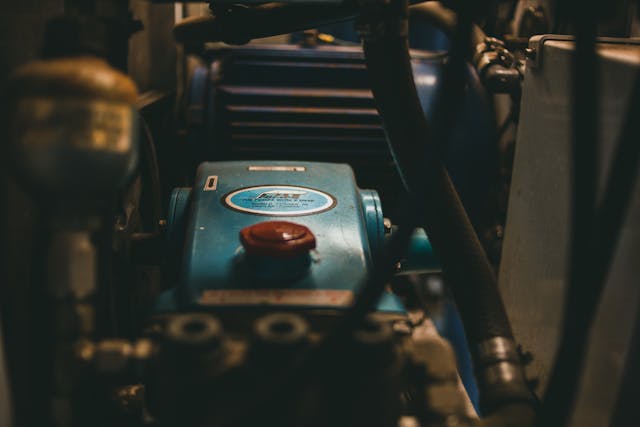Key Factors to Consider When Installing a Generator for Your Business
In today's business environment, ensuring continuous operations is crucial, especially in industries that rely heavily on power. Unplanned outages can cause disruptions that affect both productivity and customer satisfaction. Installing a generator for your business can be an effective solution to mitigate these risks. However, before making this important investment, there are several factors you need to take into account to ensure that the generator meets the needs of your business. We will explore the key considerations for selecting and installing a generator that will provide reliable power when needed most.
Assessing Your Power Needs
Understanding your power requirements is one of the most crucial factors in choosing a generator for your business. Businesses vary greatly in their energy consumption, so it's important to calculate your peak electricity demand. This includes determining the equipment, machines, and appliances you must keep running during an outage. A too small generator may not be able to handle your power load, causing it to overheat or fail. On the other hand, an oversized generator could lead to unnecessary fuel consumption and higher operating costs. You should thoroughly assess your electrical load by reviewing past power bills, evaluating machinery, lighting, and heating or cooling systems, and consulting with an energy consultant to determine the appropriate generator capacity. This information lets you select a generator that effectively supports your business operations during power outages.
Fuel Type and Availability
Another important consideration when selecting a generator is the type of fuel it uses. Generators typically run on diesel, natural gas, or propane, each offering advantages and disadvantages. Diesel-powered generators are widely used for their reliability and high energy output, making them a good choice for larger businesses. However, they require more maintenance and may produce higher emissions than other fuel types. Natural gas generators tend to be more environmentally friendly and require less maintenance, but they may only be suitable for areas where natural gas supply is reliable and costly. Propane generators are often used as a backup option for smaller businesses or rural areas where natural gas infrastructure is unavailable. Consider the availability, cost, and reliability of each fuel type in your region when selecting the right generator for your business. In addition, factor in the fuel storage requirements, as it’s important to ensure that you have enough fuel to keep the generator running during extended outages.
Size and Space Considerations
Once you’ve assessed your power needs and fuel options, it’s time to think about the size and space required for the generator installation. Commercial generators come in various sizes, and you’ll need to consider the physical space available on your property. It's essential to allocate a safe and suitable location for the generator that allows for easy access and proper ventilation. Additionally, the noise levels of the generator should be taken into account. Larger industrial generators can produce significant noise, which may disrupt your employees and neighboring businesses. If noise is a concern, you might look for a generator designed to operate more quietly or consider building a soundproof enclosure around the unit. Remember that the installation location should comply with local zoning regulations and codes. This includes maintaining safe distances from windows, doors, and air vents to prevent exhaust fumes from entering your building.
Reliability and Maintenance Needs
The generator's reliability is critical to ensure minimal downtime during power outages. A well-maintained generator will perform reliably and extend the lifespan of the unit. Before purchasing a generator, review the manufacturer’s maintenance and service intervals guidelines. Some generators require more frequent servicing than others, so it’s important to determine whether you can handle these maintenance needs internally or if you’ll need to hire an outside service provider. Regular maintenance includes oil changes, air filter replacements, fuel system checks, and battery tests.
Additionally, consider the warranty and customer support offered by the manufacturer. Some generators come with extended warranties or service agreements, which can provide peace of mind and reduce unexpected repair costs. Proper maintenance ensures the generator will be ready to perform when needed most, preventing costly downtime for your business.
Compliance with Local Regulations
Local laws and regulations are important in your business's generator installation. These regulations may govern noise limits, fuel storage, emissions, and safety standards. Before installing, check with local authorities to ensure the selected generator complies with all relevant codes. For example, certain areas may require emission control devices to reduce the environmental impact of the generator, or they may impose restrictions on the placement of generators near residential areas. In addition to regulatory requirements, ensure your installation complies with fire codes and insurance standards. Depending on the generator's fuel type and power capacity, some businesses may need to install specific safety measures, such as fire suppression systems. Ensuring compliance with local regulations not only helps avoid potential fines but also contributes to your generator's safe and efficient operation.
Choosing and installing a generator with the help of houston generator companies for your business involves carefully planning and considering several key factors. From assessing power needs and fuel options to ensuring compliance with local regulations, each decision is vital in ensuring your generator operates effectively when needed. Considering the size, maintenance requirements, and costs will help you make an informed decision that aligns with your business’s needs and budget. With the right generator in place, you can ensure that your business remains operational during power outages, protecting your productivity and reputation.

